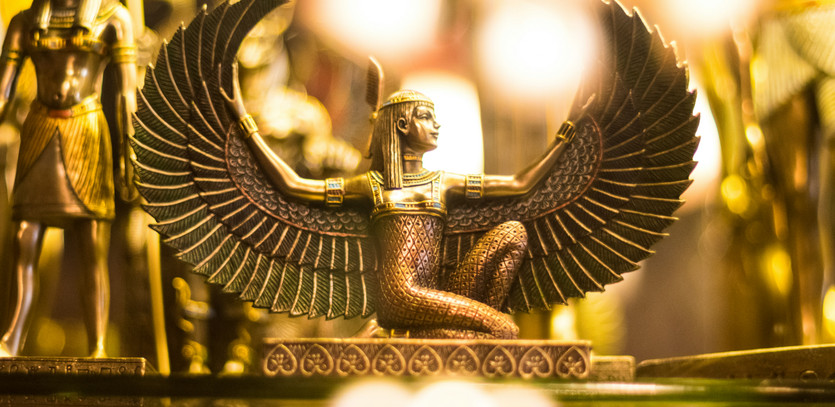Egypt Holds Optimistic Economic Outlook
Egyptian authorities anticipate greater financial inflows, and the Egyptian pound stabilizes. This comes a day after the country’s central bank reported its move towards a more flexible exchange rate. This shift allowed the currency to drop as Egypt obtained an enlarged International Monetary Fund (IMF) program worth $8 billion.
The pound floated just below 49.5 to the dollar, mirroring its price at the close of business on Wednesday according to LSEG data. Prior to the de-facto devaluation and significant boost in interest rates on Wednesday, for about a year, the central bank had maintained the currency around 31 pounds to the dollar.
The Importance of a Flexible Exchange Rate
A more flexible exchange rate, frequently advocated for by the International Monetary Fund, is vital in reviving investor confidence in an economy that has been restricted over the last two years by a foreign currency shortage.
In a clear signal of bolstered sentiment, foreign investors commenced purchasing Egypt’s treasury bills following a prolonged departure, as reported by three financial specialists.
This shortage has stymied local economic activity, causing previous delays in governmental payments for commodities, including wheat and creating backlogs at port stations.
Promised Liquidity and Exchange Stabilization
Prime Minister Mostafa Madbouly declared that Egypt is gearing up for large-scale financial deals to secure liquidity. The government will also work in tandem with merchants, aiming to stabilize prices and give priority to entities importing base commodities in obtaining foreign currencies as the currency shift becomes effective.
Finance Minister Mohamed Maait announced that Egypt expects an amount of $20 billion in total from multilateral and other partners. These include notable entities like the IMF, the World Bank, and the European Union.
The government also has committed to a plan to sell off state-owned entities to and encourage private sector investment.
Projected Financing and Sovereign Bonds
“We project closing deals in a variety of strategic sectors valued close to $3.5 billion,” Maait told the American Chamber of Commerce in Cairo. “We expect financing to come through in the short term."
Egypt’s international bonds, which initially spiked on Wednesday, declined further on Thursday. The 2033 note dipped 1.62 cents on the dollar to 81.81 cents, according to Tradeweb data. Consequently, the sovereign bond prices were trading at their lowest since early March.
A Message of Confidence
In the past, Egypt promised a move towards a more flexible exchange rate framework, only to revert back to maintaining the currency at a fixed rate. Meanwhile, much of the economy relied on a fluctuating black market rate that plummeted to an all-time low of 70 pounds.
In a rare press conference on Wednesday, Central Bank Governor Hassan Abdalla labelled the black market trading as a "malady" that highlighted a distrust in the financial structure. "Thankfully, we currently have enough to meet our responsibilities and more," he proudly announced to the media.
Abdalla also reassured that the central bank would continue to intervene amid cases of high volatility as required by other nations.
The Role of the IMF
The IMF, agreed to add an extra $5 billion to its existing $3 billion loan scheme with Egypt. The IMF stated its aim to secure a distinctive and sustainable exchange rate regulated by the market.
Under this scheme, Egypt is obligated to implement structural modifications. These include price stabilization, managing the debt load, and stimulating private sector expansion.
Foreign Investments Boost Economic Confidence
Just a fortnight ago, Egypt closed an investment deal with Emirati sovereign fund ADQ that includes a $24 billion payment for rights to develop a prime stretch of Mediterranean coastline.
This includes the conversion of $11 billion in existing deposits for unspecified projects throughout Egypt. The Egyptian government informed that this combined sum of $35 billion would be transferred within the next two months.
From early 2022, when the foreign currency shortage became severe, the pound has lost over two-thirds of its dollar value in a series of staggered devaluations.
The Gaza war and hits on Red Sea shipping have jeopardized other main sources of hard currency, such as income from tourism and Suez Canal traffic. Suez Canal revenues have dipped more than 50%, Maait reported. However, Egypt's tourism minister announced that visitor figures picked up at the start of this year.
Measures Against Remittance Channels Outside the Banking System
Remittances from Egyptians abroad, Egypt's most significant individual foreign currency source, experienced a downturn last year due to pound depreciation projections.
On Thursday, Madbouly stated that the interior ministry would respond with an "iron fist" to dealers directing remittances outside the established banking system.





